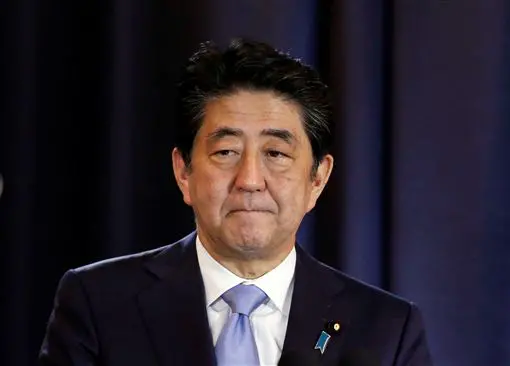Germany's centre-left Social Democrats (SDP) have voted for coalition negotiations with Chancellor Angela Merkel's conservatives, their former coalition partners.
Mr Schulz (C) had initially ruled out a new "grand coalition"
Earlier this month the two groupings agreed a blueprint for formal talks.
Mrs Merkel's centre-right CDU and its Bavarian CSU ally have been unable to form a government since September's inconclusive election.
The far-right Alternative for Germany (AfD) won 94 seats in parliament.
Initially the SPD ruled out governing with Mrs Merkel in charge again. But leader Martin Schulz changed his mind after CDU/CSU coalition talks with the liberal Free Democrats (FDP) and Greens broke down.
Merkel's sigh of relief
Jenny Hill in Berlin
It's fair to assume Angela Merkel permitted herself a sigh of relief this evening.
Nevertheless the poker face was on for the cameras as she gave a brief statement welcoming the Social Democrats' decision to approve formal coalition talks. This is her last realistic shot at forming a government and avoiding fresh elections.
It is far from a done deal. Many Social Democrats blame Mrs Merkel for a poor election result in September and there is still significant opposition within the party to another four years as her junior coalition partner.
If and when talks produce a formal agreement, all 440,000 members will be asked - via a postal ballot - to approve the deal. Mrs Merkel isn't out of the woods just yet. But she is a step closer to delivering the government, the stability she promised.
Why has it taken so long?
This is Germany's longest ever post-war period of coalition-building.
The SPD has governed jointly with the CDU for eight of the last 12 years. But after historically poor poll results for both parties in September, Mr Schulz had vowed to take his party into opposition.
However, pressure mounted on the SPD since November, when Mrs Merkel failed to cobble together a coalition with the liberal FDP and the Greens.
The two parties held preparatory talks earlier this month to see if they could overcome key policy differences and establish a framework for how they would govern.
What were the sticking points?
Mrs Merkel has said she wants to win back voters who deserted her party for the anti-immigration AfD amid tensions over the influx of asylum seekers while the SDP stood for a more open immigration policy.
Earlier this month the parties agreed to limit asylum-seeker arrivals to about 200,000 annually and may also cap at 1,000 a month the number of migrants who will be allowed to join relatives living in Germany.
Mrs Merkel and Mr Schulz have both stressed the need to ensure Germany's "social cohesion".
German official figures show that 280,000 asylum seekers arrived in 2016, a drop of more than 600,000 on the total for 2015. Arrivals fell after EU countries and Turkey tightened border controls.
There have also been disagreements over issues such as taxation. German media reported that the parties had agreed to crack down on tax avoidance in the EU, plugging tax loopholes exploited by US tech giants and other big corporations
What happens if talks fail?
Mrs Merkel could form a less stable minority government with the Greens, with SPD support.
However, she has previously said she would prefer a fresh election to that eventuality.
(BBC)
 简体中文
简体中文

